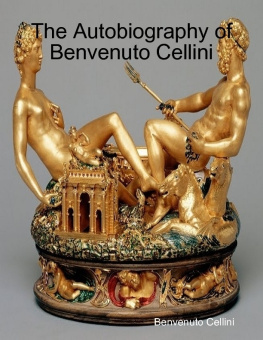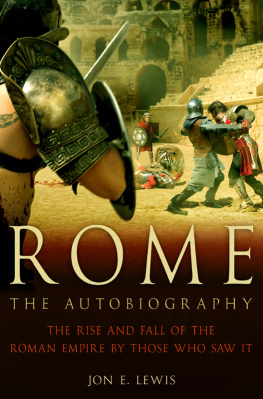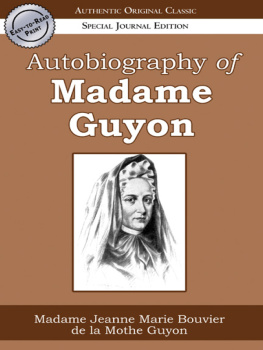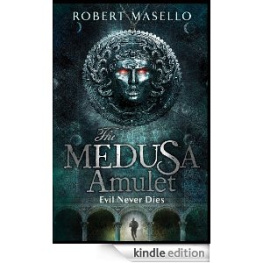ALL men of whatsoever quality they be, who have done anything of excellence, or which may properly resemble excellence, ought, if they are persons of truth and honesty, to describe their life with their own hand; but they ought not to attempt so fine an enterprise till they have passed the age of forty. This duty occurs to my own mind now that I am travelling beyond the term of fifty-eight years, and am in Florence, the city of my birth. Many untoward things can I remember, such as happen to all who live upon our earth; and from those adversities I am now more free than at any previous period of my career-nay, it seems to me that I enjoy greater content of soul and health of body than ever I did in bygone years. I can also bring to mind some pleasant goods and some inestimable evils, which, when I turn my thoughts backward, strike terror in me, and astonishment that I should have reached this age of fifty-eight, wherein, thanks be to God, I am still travelling prosperously forward.
II
IT is true that men who have laboured with some show of excellence, have already given knowledge of themselves to the world; and this alone ought to suffice them; I mean the fact that they have proved their manhood and achieved renown. Yet one must needs live like others; and so in a work like this there will always be found occasion for natural bragging, which is of divers kinds, and the first is that a man should let others know he draws his lineage from persons of worth and most ancient origin.
I am called Benvenuto Cellini, son of Maestro Giovanni, son of Andrea, son of Cristofano Cellini; my mother was Madonna Elisabetta, daughter to Stefano Granacci; both parents citizens of Florence. It is found written in chronicles made by our ancestors of Florence, men of old time and of credibility, even as Giovanni Villani writes, that the city of Florence was evidently built in imitation of the fair city of Rome; and certain remnants of the Colosseum and the Baths can yet be traced. These things are near Santa Croce. The Capitol was where is now the Old Market. The Rotonda is entire, which was made for the temple of Mars, and is now dedicated to our Saint John. That thus is was, can very well be seen, and cannot be denied, but the said buildings are much smaller than those of Rome. He who caused them to built, they say, was Julius Csar, in concert with some noble Romans, who, when Fiesole had been stormed and taken, raised a city in this place, and each of them took in hand to erect one of these notable edifices.
Julius Csar had among his captains a man of highest rank and valour, who was called Fiorino of Cellino, which is a village about two miles distant from Monte Fiascone. Now this Fiorino took up his quarters under the hill of Fiesole, on the ground where Florence now stands, in order to be near the river Arno, and for the convenience of the troops. All those soldiers and others who had to do with the said captain, used then to say: Let us go to Fiorenze; as well because the said captain was called Fiorino, as also because the place he had chosen for his quarters was by nature very rich in flowers. Upon the foundation of the city, therefore, since this name struck Julius Csar as being fair and apt, and given by circumstance, and seeing furthermore that flowers themselves bring good augury, he appointed the name of Florence for the town. He wished besides to pay his valiant captain this compliment; and he loved him all the more for having drawn him from a very humble place, and for the reason that so excellent a man was a creature of his own. The name that learned inventors and investigators of such etymologies adduce, as that Florence is flowing at the Arno, cannot hold; seeing that Rome is flowing at the Tiber, Ferrara is flowing at the Po, Lyons is flowing at the Saone, Paris is flowing at the Seine, and yet the names of all these towns are different, and have come to them by other ways. [1]
Thus then we find; and thus we believe that we are descended from a man of worth. Furthermore, we find that there are Cellinis of our stock in Ravenna, that most ancient town of Italy, where too are plenty of gentle folk. In Pisa also there are some, and I have discovered them in many parts of Christendom; and in this state also the breed exists, men devoted to the profession of arms; for not many years ago a young man, called Luca Cellini, a beardless youth, fought with a soldier of experience and a most valorous man, named Francesco da Vicorati, who had frequently fought before in single combat. This Luca, by his own valour, with sword in hand, overcame and slew him, with such bravery and stoutness that he moved the folk to wonder, who were expecting quite the contrary issue; so that I glory in tracing my descent from men of valour.
As for the trifling honours which I have gained for my house, under the well-known conditions of our present ways of living, and by means of my art, albeit the same are matters of no great moment, I will relate these in their proper time and place, taking much more pride in having been born humble and having laid some honourable foundation for my family, than if I had been born of great lineage and had stained or overclouded that by my base qualities. So then I will make a beginning by saying how it pleased God I should be born.
Note 1. He is alluding to the name Fluenzia, which some antiquaries of his day thought to have been the earliest name of the city, derived from its being near Arno Fluente. I have translated the word fluente in the text literally, though of course it signifies situated on a flowing river. I need not call attention to the apocryphal nature of Cellinis own derivation from the name of his supposed ancestor.
III
MY ancestors dwelt in Val d Ambra, where they owned large estates, and lived like little lords, in retirement, however, on account of the then contending factions. They were all men devoted to arms and of notable bravery. In that time one of their sons, the younger, who was called Cristofano, roused a great feud with certain of their friends and neighbours. Now the heads of the families on both sides took part in it, and the fire kindled seemed to them so threatening that their houses were like to perish utterly; the elders upon this consideration, in concert with my own ancestors, removed Cristofano; and the other youth with whom the quarrel began was also sent away. They sent their young man to Siena. Our folk sent Cristofano to Florence; and there they bought for him a little house in Via Chiara, close to the convent of S. Orsola, and they also purchased for him some very good property near the Ponte a Rifredi. The said Cristofano took wife in Florence, and had sons and daughters; and when all the daughters had been portioned off, the sons, after their fathers death, divided what remained. The house in Via Chiara with some other trifles fell to the share of one of the said sons, who had the name of Andrea. He also took wife, and had four male children. The first was called Girolamo, the second Bartolommeo, the third Giovanni, who was afterwards my father, and the fourth Francesco. This Andrea Cellini was very well versed in architecture, as it was then practised, and lived by it as his trade. Giovanni, who was my father, paid more attention to it than any of the other brothers. And since Vitruvius says, amongst other things, that one who wishes to practise that art well must have something of music and good drawing, Giovanni, when he had mastered drawing, began to turn his mind to music, and together with the theory learned to play most excellently on the viol and the flute; and being a person of studious habits, he left his home but seldom.










